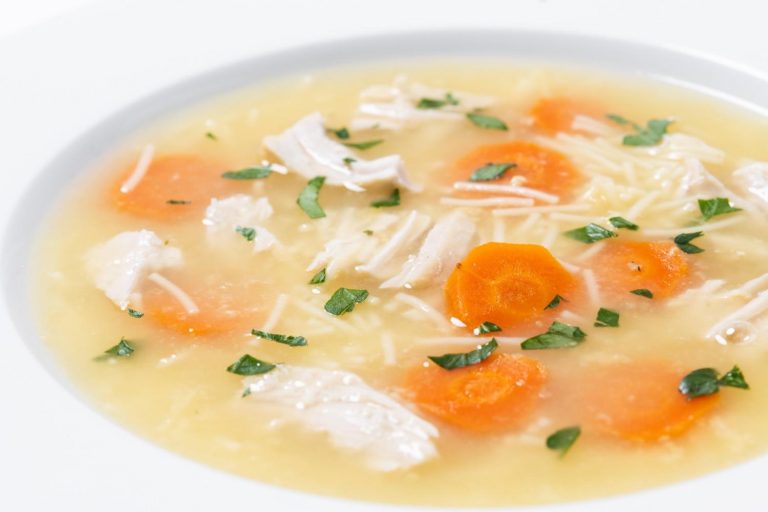Did you know that oranges aren’t just a refreshing snack but also a potential ally in battling joint discomfort? If you’ve ever experienced the nagging pain of arthritis or just the general wear and tear of aging joints, you might be on the lookout for natural remedies. Well, let’s dive into how this vibrant citrus fruit can help ease those aches.
Contents
1. Packed with Vitamin C: The Immune Booster
Oranges are famously rich in vitamin C, a nutrient that’s crucial for maintaining healthy cartilage. Cartilage is the tissue that cushions joints, and its depletion can lead to pain and stiffness. But how does vitamin C work its magic?
The Science Behind It
Vitamin C plays a significant role in collagen synthesis. Collagen is a protein that helps maintain the integrity of cartilage. A study published in the American Journal of Clinical Nutrition found that individuals with higher vitamin C intake had a lower risk of developing osteoarthritis. So, by including oranges in your diet, you could be fortifying your joints from the inside out.
Pros and Cons
Pros:
- Easy to incorporate into your diet—snack on them, toss them in salads, or drink fresh juice.
- As a bonus, vitamin C is also an antioxidant, helping to combat inflammation.
Cons:
- Some people might experience acidity or heartburn from citrus fruits. If you’re sensitive, moderation is key.
2. Anti-Inflammatory Properties
Oranges are not just about vitamin C; they also contain various phytochemicals, including flavonoids, which have been shown to exhibit anti-inflammatory properties. This can be particularly beneficial for those suffering from inflammatory joint conditions like rheumatoid arthritis.
What the Research Says
A study in the Journal of Nutrition highlighted that flavonoids could help reduce inflammation markers in the body. By incorporating oranges into your diet, you might find some relief from that persistent joint pain.
Pros and Cons
Pros:
- Natural and delicious way to reduce inflammation.
- Flavonoids can also contribute to overall health by supporting heart health.
Cons:
- Relying solely on oranges isn’t a magic bullet; they should be part of a balanced diet.
3. Hydration for Joint Lubrication
Let’s be real: hydration is often overlooked when it comes to joint health. Oranges have a high water content—about 86%. Staying hydrated helps keep synovial fluid levels up, which lubricates your joints and reduces friction.
Why Hydration Matters
Dehydration can lead to joint stiffness and discomfort. By snacking on oranges, you’re not just enjoying their flavor; you’re also helping to keep your joints well-lubricated.
Pros and Cons
Pros:
- A tasty way to increase your daily water intake.
- Combines hydration with essential nutrients.
Cons:
- If you’re trying to limit sugar intake, be mindful of the natural sugars in fruit.
4. Fiber-Rich for Digestive Health
While it may seem like a stretch, maintaining overall digestive health can have an impact on joint health. Oranges are a good source of dietary fiber, which helps regulate digestion and can reduce inflammation in the body.
The Gut-Joint Connection
Research suggests that a healthy gut can influence inflammation levels throughout the body. A study in Nature Reviews Rheumatology found that gut health plays a critical role in immune function and inflammation. So, by keeping your digestive system happy with fiber-rich foods like oranges, you might be doing your joints a favor.
Pros and Cons
Pros:
- Supports overall health, not just joint health.
- Eating fiber can help you feel full longer, aiding in weight management.
Cons:
- Some individuals may experience bloating or gas from increased fiber intake, so it’s best to increase fiber gradually.
5. A Natural Source of Antioxidants
Oranges are packed with various antioxidants, including beta-carotene and flavonoids. These compounds help combat oxidative stress, which can contribute to joint pain and inflammation.
The Antioxidant Effect
Oxidative stress occurs when there’s an imbalance between free radicals and antioxidants in the body. A study published in Molecular Nutrition & Food Research suggests that antioxidants can help protect against joint damage. By consuming oranges regularly, you can help mitigate this risk.
Pros and Cons
Pros:
- Antioxidants offer a range of health benefits beyond joint health.
- Easy to add to your daily routine—try adding them to smoothies or yogurt.
Cons:
- Antioxidant effects are most potent when consumed as part of a varied diet, so don’t rely solely on oranges.
FAQs
1. How many oranges should I eat for joint health?
While there’s no specific recommendation, incorporating one to two oranges a day into a balanced diet can be beneficial.
2. Can I substitute orange juice for whole oranges?
While orange juice does contain some nutrients, it often lacks the fiber found in whole oranges. Whole fruits are generally more beneficial for overall health.
3. Are there any side effects of eating too many oranges?
Eating too many oranges can lead to digestive issues like heartburn or diarrhea due to their acidity and high fiber content.
4. Can oranges help with conditions like arthritis?
While they can help reduce inflammation and provide essential nutrients, they should be part of a comprehensive treatment plan for arthritis.
Conclusion
Incorporating oranges into your diet is an easy, tasty way to potentially ease joint discomfort. With their vitamin C content, anti-inflammatory properties, and hydration benefits, these citrus fruits pack a punch for your joints. But remember, they’re not a cure-all. It’s essential to maintain a balanced diet and consult with a healthcare provider about any persistent joint issues.
So next time you’re at the grocery store, consider adding a few extra oranges to your cart. Your joints might just thank you!
Disclaimer: This article is for educational purposes only and is not a substitute for professional medical advice. Always consult a qualified healthcare provider before making changes to your health routine.
References
- Carr, A. C., & Maggini, S. (2017). Vitamin C and Immune Function. Nutrients, 9(11), 1211. https://www.ncbi.nlm.nih.gov/pmc/articles/PMC5707683/
- Muka, T., et al. (2016). The role of flavonoids in the prevention of chronic diseases. Journal of Nutrition, 146(1), 12-19. https://academic.oup.com/jn/article/146/1/12/4584821
- Tzeng, Y. H., et al. (2018). Gut microbiota and joint health: a review. Nature Reviews Rheumatology, 14(5), 295-307. https://www.nature.com/articles/s41584-018-0028-4
- Yang, Y., et al. (2018). Antioxidants and joint health: a review. Molecular Nutrition & Food Research, 62(7), e1700515. https://onlinelibrary.wiley.com/doi/full/10.1002/mnfr.201700515
Get Your FREE Natural Health Guide!
Subscribe now and receive our exclusive ebook packed with natural health tips, practical wellness advice, and easy lifestyle changes, delivered straight to your inbox.




